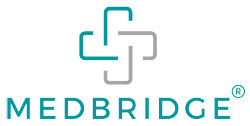Knowledge, experience and skills in:
- the general content of training for Sections B and C
- the general and physical chemistry, including reaction kinetics, thermodynamics, electrochemistry and the theory of chemical bonding and the equilibrium states and the biological statistics and data processing
- biochemical reactions to foreign substances, the mechanisms of action of groups of substances at the molecular level, the pathophysiology of metabolic diseases and metabolic abnormalities, including endocrine disorders, and the water and electrolyte balance, as well as the nutritional and toxicological problems of environmental protection
- the chemical and biochemical laboratory diagnostics

- photometry, fluorometry, and electrometry
- the representation of biological substances
- the enzyme preparations and enzymatic determinations
- chromatography and electrophoresis
- cell fractionation, isotope technology, and microtiter method
- immunochemical tests
- the characteristics of the proteins and carbohydrates
- the lipid and protein metabolism and enzymology, including the methods of structure elucidation
- the biochemical functions of tissues and organs as well as the mechanisms of cell and organ metabolism
- the basis of biochemical genetics and immunochemistry
- the biochemistry of nutrition, acid-base and water, and electrolyte balance
- organization of the laboratory and the laboratory





